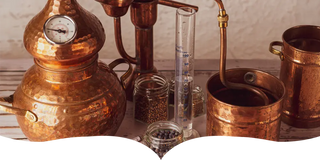

Welcome to our Ingredient Glossary
At Sagrada BioSkincare, we believe in the power of nature to nourish and replenish the skin.
Our products are carefully crafted using a blend of potent, natural ingredients known for their beneficial properties. In this section, you’ll find an in-depth look at the key ingredients we use in our formulations. Each ingredient has been selected not only for its efficacy but also for its ability to work synergistically with others to help bring out the best in your skin.
Explore our Ingredient Glossary to learn more about the natural treasures that make our skincare products so effective. Whether you’re curious about the benefits of Bakuchiol, the soothing properties of Calendula, or the antioxidant power of Rosemary, you’ll find all the details you need right here. Dive in and discover the science and care behind every product we have formulated.


